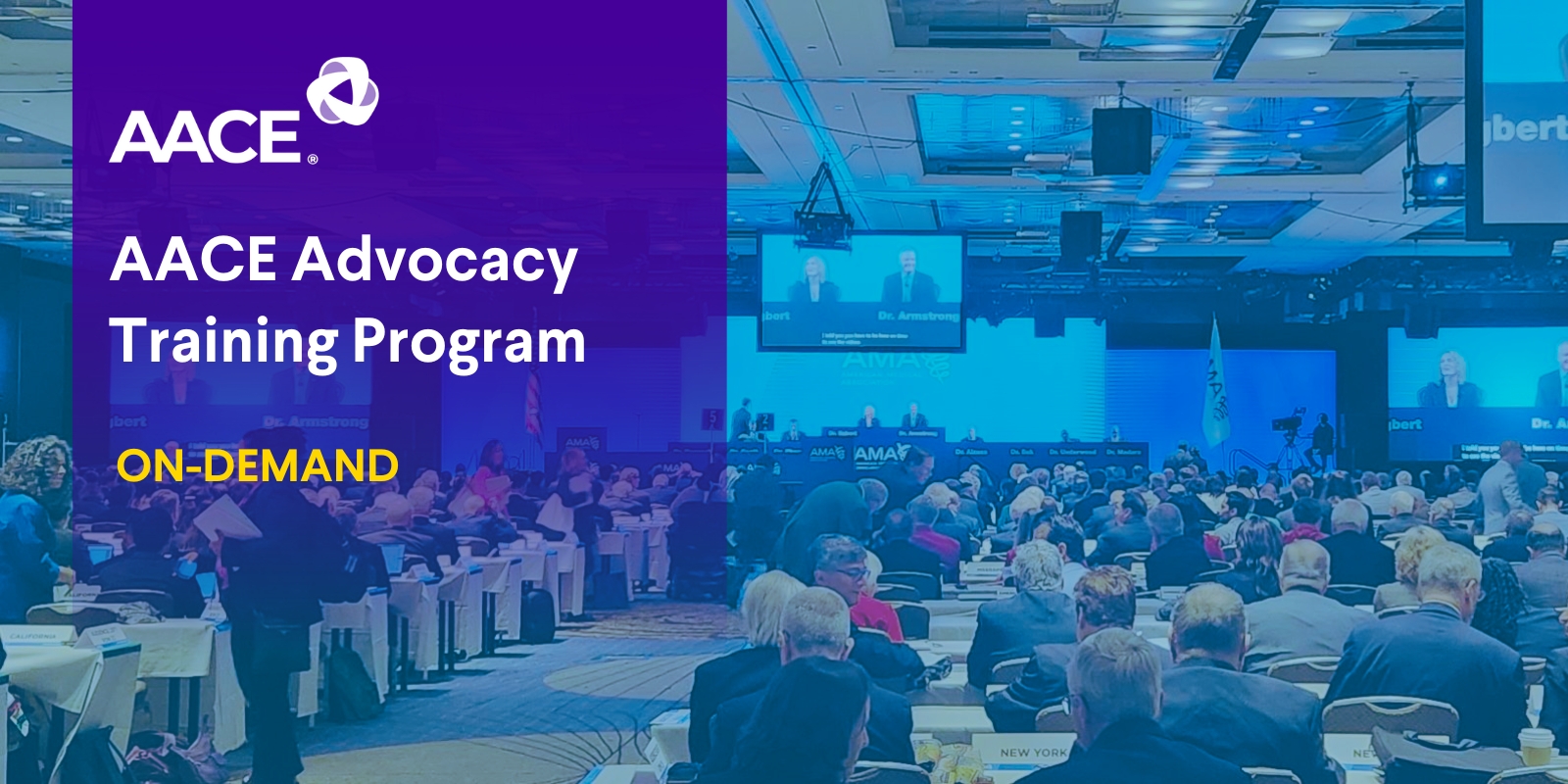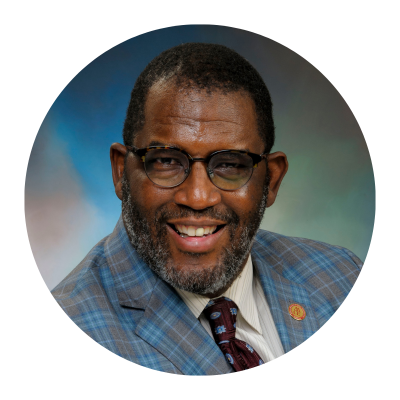
2024 AACE Advocacy Training Program On-Demand
Did you register for the live event but missed a session? Log in to your registered account on the event platform, then:
- Click view the program schedule
- Select a presentation to view on-demand
- In the presentation pop-up window, click the on-demand video button located at the bottom right-hand corner.
Didn't get a chance to register for the live event? Register for free now to watch all sessions on-demand.
The AACE Advocacy Training Program was designed to empower endocrinologists, endocrine care team members, industry professionals, and patient advocates with the knowledge, strategies, and tools to become an effective advocate for endocrine issues such as improved access to endocrine care. Through expert-led sessions, interactive discussions, and real-world case studies, you'll gain invaluable insights into navigating the legislative process, collaborating with stakeholders, leveraging public awareness campaigns, and empowering patients in advocacy efforts.
Target Audience
Target Audience
The target audience for this activity is endocrinologists, endocrine care team members, industry professionals, and patient advocates.
Learning Objectives
Learning Objectives
By the end of this advocacy training program, participants will be able to:
- Define the concept of advocacy and prioritize critical advocacy issues affecting endocrinology practice, patient care, and research.
- Recognize disparities and challenges faced by patients with endocrine disorders and advocate for policies that promote equitable access to endocrine care and reduce healthcare disparities.
- Describe the legislative process and understand how policies are formulated and implemented.
- Collaborate with sister organizations, patient advocacy groups and others to create an effective coalition.
- Improve efficiencies in AACE's response to important advocacy issues through timely and rapid communication amongst AACE' trained advocates nationwide.
- Apply strategies for effectively communicating with policymakers, including crafting persuasive messages, demonstrating evidence, and engaging in meaningful conversations.
- Advocate for policies that promote equitable access to endocrine care and reduce healthcare disparities.
2024 Advocacy Planning Committee
2024 ADVOCACY
PLANNING COMMITTEE

Advocacy
Chair
S. Sethu K. Reddy, MD, MBA, FRCPC, FACP, MACE

Advocacy
Member
William C. Biggs, MD, ECNU, FACE

Advocacy
Member
Pavan Chava, DO, FACE

Advocacy
Member
Vickey Cheng, MD, ECNU

Advocacy
Member
Kevin McKinney, MD, FACE
Faculty
Faculty
Our faculty members represent diverse backgrounds and perspectives, ensuring a rich learning experience for all participants. With expertise in endocrinology and advocacy, our faculty is committed to driving excellence and innovation in patient care.
View Faculty
